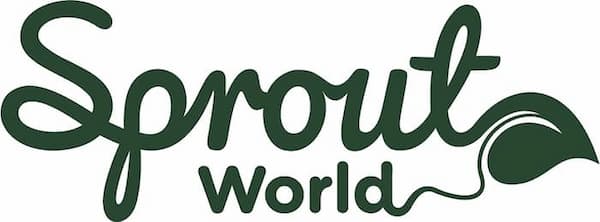
19 October, 2023
How Eco Friendly Pens Can Educate the Masses
In an era dominated by digital communication, the tactile appeal of a simple writing instrument remains unparalleled. Pens have been instruments of change, having chronicled histories, written revolutions, and signed treaties. But can they be ambassadors of environmental awareness? Absolutely!
The Mighty Pen: A Tool of Advocacy
Promotional pens are potent educational tools, particularly those bearing the mark of an environmental cause. At first glance, they're functional giveaways - useful, portable, and frequently used. But a deeper look reveals them as silent advocates, engaging their users in unexpected lessons on pressing global concerns.
The Power of Eco-Friendly Materials
The journey begins with the very material of the pen. Eco-friendly pens made from sustainable materials such as bamboo, recycled plastic, or biodegradable components reduce waste and symbolise the essence of sustainability. Whenever someone uses such a pen, they're reminded of the alternative to our disposable culture.
Imagine being handed a pen made entirely of recycled ocean plastic. Just the tactile feel of such a pen can evoke thoughts about the magnitude of the marine pollution crisis and the innovative solutions being employed to combat it.
Messages that Resonate
However, the real magic lies in the imprinted messages. Organisations can transform this everyday object into a continuous reminder of environmental issues by embedding statistics, quotes, or simple calls to action on the pen's body. A message like "By 2050, oceans could have more plastic than fish" can be a conversation starter, prompting discussions on sustainability, conservation, and personal responsibility.
Action Beyond Words
Some organisations have taken it a step further. They offer pens that bloom! These biodegradable pens contain seeds. Once their writing life is over, they can be planted to give life to a tree or a plant, turning a tool of communication into an agent of environmental rejuvenation.
Many companies worldwide are turning to eco-friendly promotional items, including pens, as part of their marketing and sustainability initiatives. Here are five examples of companies and organisations that have made use of promotional eco-friendly pens:
Sprout World

Sprout World, an innovative player in the eco-friendly market, has created waves with its unique plantable pencil product. But what sets these pencils apart, and why have they caught the attention of businesses globally?
Sprout World challenges the norm in a world cluttered with disposable items by turning what's typically discarded into something that gives life. Their pencils, constructed from sustainable wood, don't just end up in a bin once they're too short to use. They begin a new chapter. The magic lies in the pencil's end. Instead of an eraser, you'll find a water-soluble capsule that encases a seed. The pencil can be planted into the soil when it becomes too stubby to write with. With a bit of care – watering, sunlight, and patience – the seed germinates and grows. Depending on the variant, you might find yourself nurturing cherry tomatoes, sunflowers, or even basil from what was once a writing tool.
For companies, the appeal of Sprout pencils is twofold. Firstly, they're a fantastic green alternative to regular promotional items. Every Sprout pencil handed out is a testament to a company's commitment to sustainability and innovation. Secondly, the user engagement doesn't end when the graphite does. Recipients engage with the brand in a novel, prolonged way, nurturing the plant that sprouts from the pencil. It's experiential marketing at its finest – the brand becomes part of the customer's environment.
Numerous companies spanning a range of sectors have seen the potential in Sprout's offering. The applications are vast, from banks looking to emphasise growth to schools keen on teaching sustainability. By branding these pencils, businesses offer a functional tool and a memorable experience, aligning their name with eco-conscious values and forward-thinking innovation.
Ecosia

Ecosia, renowned for its commitment to a greener planet, has always been about more than just online searches. While their primary mission is planting trees with the revenue generated from searches, their approach to raising environmental awareness doesn't stop there. One of their initiatives that has caught attention beyond the digital space is their promotional merchandise, notably the eco-friendly pens made from sustainable materials.
Choosing an eco-friendly pen is a conscious decision to remove disposable, plastic-centric products that clutter our environment. Their pens are crafted using materials that either decompose more effectively than traditional plastics or are sourced responsibly, reducing their environmental footprint. For a brand synonymous with trees and green initiatives, a sustainably made pen is an extension of its identity. Every time someone uses one, the connection between their mission and environmental responsibility is reinforced. It's not just a tool to write; it's a statement.
While they operate in the digital realm, they recognise the impact of tangible items in an individual's daily life. A pen, a constant in many people's hands, pockets, or bags, becomes an everyday reminder of the brand's ethos. Every scribble or note carries a message of sustainability and reforestation. The act of writing itself is symbolic: ideas take form, dreams are sketched, and plans are penned down. With its inherent message, their eco-friendly pen ensures that every thought written down is also a nudge towards thinking about the planet. It embodies the idea that every action, as mundane as writing, can be transformed into an environmentally conscious decision.
Patagonia

Patagonia, a brand celebrated for its fierce commitment to environmental consciousness, isn't just a purveyor of high-quality outdoor gear. They champion the message of ecological responsibility and sustainability through every fibre of its being. This ethos permeates all facets of their operations – from their products to their marketing paraphernalia. One such example is their choice of eco-friendly promotional pens made of recycled materials.
In a world overflowing with waste, the decision to craft pens from recycled materials speaks volumes. By choosing this route, they ensure they reduce the need for virgin materials and give a second life to waste that might otherwise have ended up in a landfill. These pens, in essence, echo the brand's approach to its apparel: a blend of innovation, quality, and ecological responsibility.
Every company has promotional products, but their choice to offer eco-friendly pens embodies their mission. These aren't just writing tools but symbols of what the brand stands for. Every scribble or signature made with these pens represents the company's unyielding dedication to sustainability.
While the digital realm offers vast possibilities, there's an undeniable impact in the physical, tactile world. A pen, used daily by many, becomes a silent ambassador for the brand's principles.
Incorporating sustainability in promotional products is a subtle yet powerful way to make a statement. Instead of overtly broadcasting their mission, Patagonia chooses to embed it in everyday objects. It's a gentle, consistent reminder of the brand's core beliefs. Each time a user picks up a Patagonia eco-pen, the brand's values are reinforced without a word being spoken.
Whole Foods Market

Whole Foods Market has long been associated with organic produce, sustainable farming, and a commitment to a greener planet. Their ethos, however, doesn't stop at the products on their shelves. It's interwoven into their branding, their policies, and even their promotional materials. A prime example of this commitment is their choice of promotional pens crafted from corn plastic, an innovative and eco-friendly alternative to traditional plastics.
Corn plastic, known as polylactic acid (PLA), is derived from fermented plant starch, usually corn. Not only is it renewable, but it's also biodegradable. This means that the pens, after their writing life ends, won't linger for centuries in a landfill. Instead, under the right composting conditions, they can break down in just a few months to a few years, depending on the environment.
Their decision to opt for pens made of corn plastic is a tangible reflection of their overarching commitment to the environment. They serve as everyday reminders of the company's dedication to sustainability and innovation. A pen might seem like a minute detail in the grand scheme of things. But when consumers use this pen, they're constantly reminded of Whole Foods Market's commitment to eco-friendly practices. It reinforces trust in the brand, emphasising they aren't merely about organic foods but an entire sustainable lifestyle.
Most users might not be aware of what corn plastic is or its benefits. Introducing such products to the masses indirectly educates its customers about sustainable alternatives available in the market, prompting them to make more informed choices in other areas of their life. Their decision to use this type of pen sets a precedent. They're leading by example, showcasing that sustainability is not a niche practice but something that other businesses can mainstream and adopt.
Eco Hotels.com

Across the globe, the hospitality industry has been undergoing a transformative shift towards sustainability. Leading the way in this movement is the global eco-hotel chain, Eco Hotels. While their eco-conscious initiatives manifest in various forms – from sustainable building materials to waste reduction practices – one of their standout branding choices lies in a seemingly simple object: the pen.
It has been given a unique twist by Eco Hotels. Instead of using traditional plastic pens, they have chosen pens made entirely from recycled materials. Each time a guest uses one of them, it serves as a subtle yet effective reminder of the hotel chain’s dedication to sustainable practices. In an industry where the smallest details can enhance guest experience, their choice of pen sends a clear message: sustainability is at the heart of their brand.
The materials used in these pens have had past lives – perhaps as plastic bottles, paper, or other discarded items. Repurposing these materials prevents waste from ending in landfills and reduces the energy consumption and carbon emissions of producing new materials.
They are not a standalone initiative but an extension of Eco Hotels' overarching philosophy. They seamlessly fit into the hotel’s larger commitment to an eco-friendly approach, whether it’s in the form of energy-efficient appliances, organic toiletries, or waste management systems.
Beyond their functional use, they serve as an educational tool. Guests, intrigued by the concept, often get introduced to the broader idea of recycling and repurposing. Such small gestures can inspire travellers to adopt similar sustainable practices in their personal lives.
While the journey towards a more sustainable future is paved with significant changes and decisions, sometimes, it's the smaller choices that leave a lasting impact. Their decision to use recycled pens stands as a testament to their unwavering commitment to sustainability, proving that every choice – no matter how small – counts in the grand scheme of creating a greener planet.
Conclusion
In the grand scheme of things, a pen might seem too small an instrument to make a difference. Yet, as we've seen, with the right messaging and eco-conscious design, it has the power to educate, inspire, and drive change. The next time you jot down a note with a promotional pen, remember: you're not just writing, you're echoing a message of global importance.
The Pens Only Team

